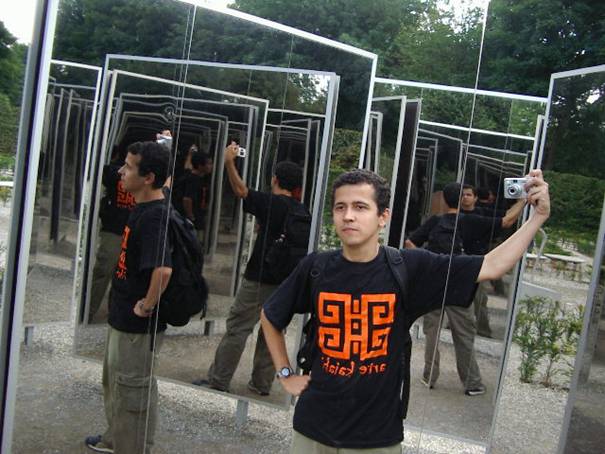
Multiple-Conclusion Logics
João Marcos
Center for Logic and
Computation
Technical
University of Lisbon - Portugal
The aim of this tutorial is to present the advantages and purview of a multiple-conclusion approach to logic and metalogic. Such an approach helps not only to eliminate any still existing bias towards truth (when falsity is just as respectable), but also to help expressing and comparing different kinds of logical systems. The very basic, though lamentably still insufficiently well-known, general issues and techniques related to multiple-conclusion reasoning will be presented in the tutorial.
The first lecture will compare the single-conclusion and multiple-conclusion approaches, for a motivation, and will survey some standard approximations to the very concept of logic.
The second lecture will investigate what happens in such an environment with the general metalogical tools and concepts, both from an abstract and a semantical standpoints.
The third lecture will deal with specific applications, further illustrations, and more esoteric results.
References:
A.Avron, “Simple consequence relations”, Information and
Computation, 92 (1991), pp.105-139.
J.-Y.Béziau, “A survey of general abstract logic”,
Preprint (2003).
N.Bourbaki, “The architecture of mathematics”, American
Mathematical Monthly, 57 (1950), pp.221-232.
S.Read, “Harmony and autonomy in classical logic”, Journal of
Philosophical Logic, 29 (2000), no.2, pp.123-154.
D.Scott, “Completeness and axiomatizability in many-valued
logic”, in Proceedings of the Tarski Symposium, L.Henkin (ed.),
American Mathematical Society, Providence, 1974, pp.411-435.
K.Segerberg, Classical Propositional Operators – an exercise
in the foundations of logic, Oxford Logic Guides 5, The Clarendon
Press, Oxford University Press, New York, 1982.
D.J.Shoesmith and T.J.Smiley, Multiple-Conclusion Logic,
Cambridge University Press, Cambridge-New York, 1978.
A.Tarski, “Über den Begriff der logischen Folgerung”,
Actes du Congrès International de Philosophie Scientifique, 7
(1936), pp.1-11.
R.Wójcicki, Theory of Logical Calculi, Kluwer,
Dordrecht, 1988.
J.Zygmunt, An Essay in Matrix Semantics for Consequence
Relations, Wydawnictwo Uniwersytetu Wroclawskiego, Wroclaw, 1984.